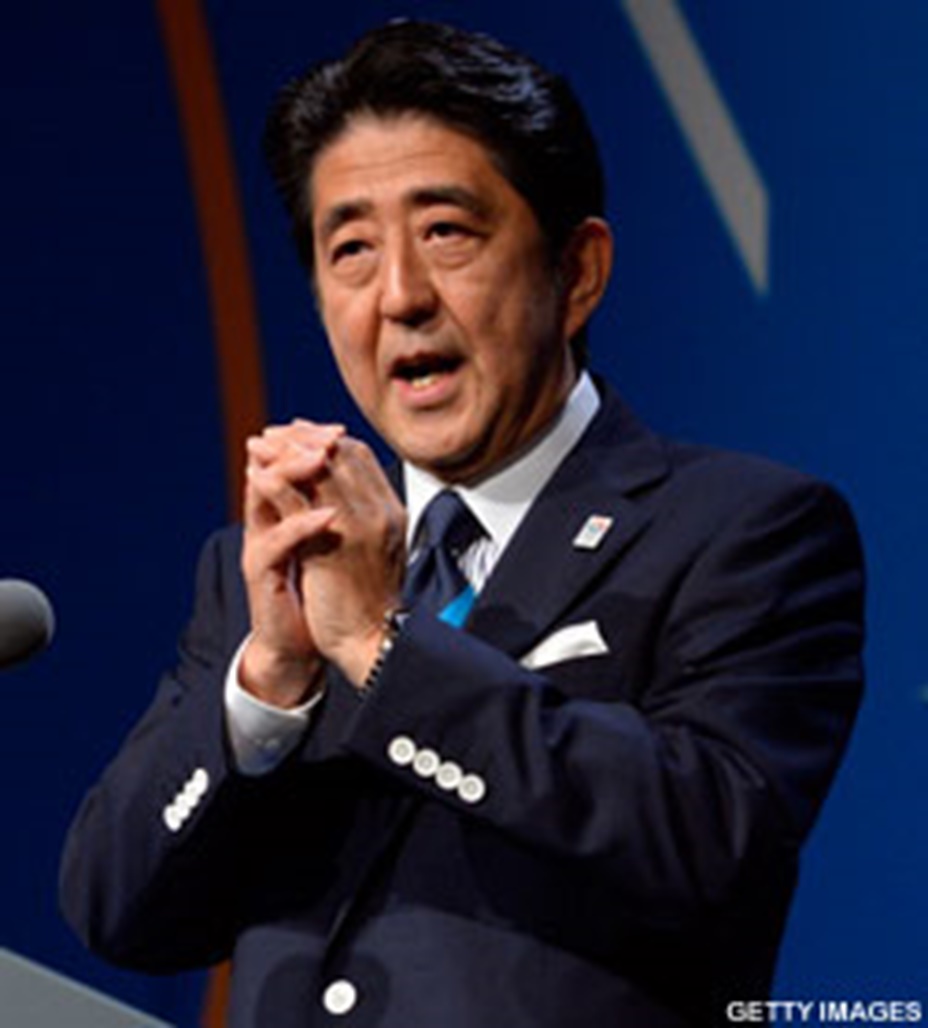The choice of Tokyo to host the '20 Games "bucked the IOC's recent trend of taking chances on host cities," according to Stephen Wilson of the AP. Tokyo had "been on the defensive in the final days of the campaign because of mounting concerns over the leak of radioactive water from the tsunami-crippled Fukushima nuclear plant." But Japan Prime Minister Shinzo Abe "gave the IOC assurances that the Fukushima leak was not a threat to Tokyo and took personal responsibility for keeping the Games safe." IOC members said that Abe's answers "were critical and helped dispel any doubts." Canada IOC member Dick Pound said, "People wanted to hear it and needed to hear it. And he delivered on that" (AP, 9/7). In N.Y., Longman & Fackler wrote the decision was "met with elation in Japan, where it was seen as a vote of international support for the nation’s efforts to pull itself out of a long economic and political decline and to overcome the devastating earthquake, tsunami and nuclear accident two years ago." Environmental concerns in Japan "appeared less urgent than the Syrian war on Turkey’s border, a harsh crackdown against antigovernment protesters recently in Istanbul and Spain’s economic recession and high unemployment." Both Madrid and Istanbul during Saturday's final presentations "faced pointed questions about their countries’ poor records in combating doping." Tokyo noted that "no Japanese athlete had ever tested positive for banned substances at the Olympics" (N.Y. TIMES, 9/8). NBC's Anne Thompson said of the decision, "The country has the experience, hosting two Winter Games and the 1964 Summer Games also in Tokyo. It is one of the most sophisticated cities in a sports-crazed nation. One more thing: Japan has deep pockets offering Olympic officials the kind of financial support they just couldn't pass up" ("Today," NBC, 9/8). REUTERS' Rex Gowar wrote the Madrid delegation was "left reeling on Saturday by the shock of their early elimination as host ... and defended their bid presentation as 'the best' of the candidate cities" (REUTERS, 9/7).
RESTORING HOPE: The WALL STREET JOURNAL's Yuka Hayashi writes, "Many in Japan responded with unrestrained displays of joy and excitement." The victory is "about restoring hope and energy among the nation's weary populace, something Japan needs desperately to tackle its numerous challenges" (WALL STREET JOURNAL, 9/9). The AP's Elaine Kurtenbach wrote many in Japan "consider the Olympics a symbol of recovery both from economic stagnation and from the 2011 earthquake and tsunami that left more than 19,000 people dead or missing on Japan's northeast coast." Japan is "counting on the games to boost both the economy and morale." Surveys showed that 70% of Tokyo residents "favored the bid" (AP, 9/8). In L.A., Yuriko Nagano cited analysts as saying that the Olympics "could prove both an economic and psychological boost for Japan" (L.A. TIMES, 9/8). But QUARTZ' Gwynn Guilford wrote Olympic preparations are "highly likely to exacerbate Japan’s already massive debt problems" (QUARTZ.com, 9/7).
INSIDE THE BID: USA TODAY's Kelly Whiteside wrote Japan's presentation "was technically stunning and by far the most emotional" (USATODAY.com, 9/7). In DC, Harlan & Svrluga wrote Tokyo’s organizers in their presentation "touted their city’s modern infrastructure and transportation system, as well as its low crime rate." Tokyo's selection "sets it up for years of construction" costing upward of $5B (WASHINGTON POST, 9/8). The WALL STREET JOURNAL's Alexander Martin wrote symbolic of Tokyo's "plan to tie together the old and the new is how venues will be divided into two zones -- the 'Heritage Zone,' where venues used in the 1964 Games are, and the 'Tokyo Bay Zone,' which will feature 22 venues and Olympic installations." Tokyo's plan says that 85% of the venues, "including the Olympic Stadium, would be located within an eight kilometer radius" of the $956M, 44-hectare waterfront Olympic Village complex that will house 17,000 beds. Tokyo said that 22 of the 37 venues proposed "will be newly constructed for an estimated" $3.11B with 11 permanent and 11 temporary facilities planned (WALL STREET JOURNAL, 9/8). Former LOCOG Chair Sebastian Coe in a special to the London TELEGRAPH writes, "What I would say to the Tokyo 2020 organising committee is get out of the blocks quickly and be prepared for the hardest work of your life. It is unrelenting. You are never off duty and you and your organisation will be scrutinised and expected to uphold higher standards than in anything that you have ever done. Those five rings make a massive difference" (London TELEGRAPH, 9/9).
WHERE DOES THIS LEAVE THE U.S.? In Chicago, Philip Hersh reported Tokyo winning the '20 Games could hurt the chances for the U.S. to have a "successful 2024 bid because it leaves an opening for European bids." There now will not be "consecutive Summer Games on the same continent since 1948-52." Pound said, "What it does is increase the likelihood there will be another European bid. That said, if we are in kiss-and-make-up time with the U.S. … why not (a successful U.S. bid.)” Meanwhile, Abe made a "seemingly impossible guarantee there would be no more present or future health-related problems related to radioactive water." Paralympian Mami Sato's speech to the IOC was "full of passion and force of conviction Tokyo had lacked in its 2016 bid" (CHICAGO TRIBUNE, 9/8). The WALL STREET JOURNAL's Futterman & Martin noted the "Far East will become the center of the Olympic movement toward the end of this decade," as the '18 Winter Games are scheduled for Pyeongchang, South Korea (WALL STREET JOURNAL, 9/8).




